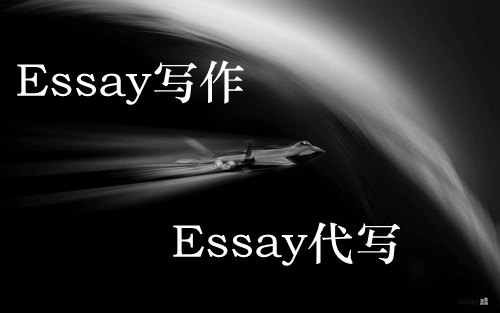
教育Education代写,作业代写 美国定制写作,education paper代写, assignment, dissertation 代写, Coursework 课程作业代写 , thesis proposal代写, term paper, 本公司提供24小时代写服务,您有任何关..
EG1hao 立即咨询发布时间:2021-07-20 热度:
DueEssay是提供留学生代写,Assignment代写,Exam代考,Report代写,保证100%原创,准时提交高质MLA格式,apa格式,哈佛格式英文论文代写,essay代写价格透明,老牌Essay代写推荐,论文作业代写服务机构。留学生论文网专业提供代写留学作业,代写essay,代写assignment,CS代写,Termpaper代写、Course代写,澳大利亚essay代写,会计学、管理学,社会学、统计学,生物、化学、商业,物理学、生理学、政治学、项目管理学,物业学、心理学等。
教育Education代写,作业代写 美国定制写作,education paper代写,assignment,dissertation 代写,Coursework 课程作业代写 ,thesis proposal代写,term paper,本公司提供24小时代写服务,您有任何关于代写留学生作业问题请随时咨询我们。

WHAT IS THEORY?
●An intellectual device (a vocabulary) used to explain social phenomena (actions/behaviors). Theory helps us to make sense of the world.
●The term “theory” derives from the Greek root theoria: it privileges seeing, so one function of theory is to help individuals see and interpret phenomena and events.
●Established principles based on repeated observation or testing.
●Imagine theory being a pair of binoculars 双目的 that allow you to see and think about a situation differently.
●You can and do command multiple theories at once.
●Theory, however, does have “blindspots” and limitations which restrict their focus.
●Theory can be used as maps to guide our thinking or as “weapons” to challenge the “truth”.
WHAT IS NATURAL FACT?
●A fact that is so real in our everyday practices and in our minds that we do not question it.
●It does not require further elaboration; it is self-evident and true.
●It is the way things are supposed to be, the way things have always been.
What is media? (indirectly, selective)
●“A medium is something we use when we want to communicate with people indirectly rather than in person or face by face… Media do not offer a transparent window on the world.”
●An array of modern communication technologies that disseminate information to large audiences, such as movies, video games, radio, websites, magazines, televisions, newspapers, books, textbooks, clothing, etc.
●“Media text” or “popular cultural text” or “cultural text” denotes the particular television shows, music video, clothing styles, websites, news stories, etc. that convey a range of meanings to a rage of audiences.
●“The media intervene: they provide us with selective versions of the world, rather than direct access to it”
Author as noun/verb
●Author as noun: Not everybody can be an author as noun
●Author as verb: write, can write anything. Anybody can be an author as verb.
●Author as noun can be author as verb but not every author as verb can be author as noun.
Author as noun denotes
●Authority, credibility, truth, honor and reverence; critical thought, inquiry or challenge is rendered useless. Author as noun values the meaning.
●Author as a verb, however, suggests that:
○The writer has the ability to “write” but does not garner power, authority or reverence to be studied by future generations
What is the canon?标准
●The term comes from Middle English. It has religious connotations, meaning it is THE authoritative list of books accepted as Holy Scripture.圣经
●An accepted principle or rule.
●A sanctioned or accepted group or body of related works.
●Associated with author as noun.
Problems with canon selections
●Where do we begin? Who gets to decide?Who gets into the canon and who doesn’t? And why?
●For example, in American literary traditions, we traditionally start with Cotton Mather and Jonathan Edwards - but these people did not view themselves as authors.
●What about Thomas Otway and Herman Melville?
●Even texts that are “canonized” are problematic because they do not have author.
What is the relationship between Author (noun), meaning, and power?
●Canonized books should have meaning in it.
●Author as noun is gurantee of meaning.
Authority and power
●Author (noun) functioned as the source to validate and guarantee meaning.
●But… Meanings do not rest exclusively with the author; the meaning of texts are multiple. Our job becomes to find the meaning.
●Author (noun) determined what knowledge was included, excluded and occluded.
●This determines what people value and believe.
Institutions
●An established organization of public character that seeks to create, promote, and protect cultural values and norms.
●Influence how people act
●Family, the state (government), Media, Education, Religion, Economic
Death of the “Author”
●If the author’s privilege of controlling the meanings or interpretations of a text are challenged, the reader now has the power to “produce meaning rather than find it” (p.18).
●Not a literal but rather figurative death-the ability of institutions to fix, freeze or hold meanings is challenged.
●Political consequences: If sole author/ity of meaning making is taken away from the author (noun), than new meanings and new ways of thinking and behaving can occur.
What is political?
●Politics is also a process through which a society settles its conflicts.
●Institutions are engaged in these processes in which power and authority is created, organized, distributed, and employed.
●Politics is a struggle for power and advantage. “Who gets what, when and how?”
●Political conflict:
○Resources/Scarcity examples:
■Health care
■Education
■Jobs/Money
○Values examples:
■Abortion
■Environment
■The economy
Critica Media Literacy
●CML expands “literacy” to include different forms of mass communication and popular culture.
●It examines the role of language and other forms of communication in relationships of power and domination.
●It analyzes the relationships between media and audiences, information, and power.
●Can be used to challenge oppression and strengthen democracy (issues of power).
What is social?
●“Social” refers to the ability to act with others in a social system.
●You are motivated to reach goals as defined by the social system… you are at some level relational with others.
Constructivist approach
●Definition of language used broadly here to include:
○Written and spoken words
○Visual images
○Facial expressions
○Gestures
○Language of fashion
○Pixels on a television screen
○Language of the traffic light, etc…
●Language is public and social. Objects or words do not have a “natural” meaning, nor can individuals fix meaning to them.
Language, pepresentation, and codes
●Rather, WE CONSTRUCT MEANINGS, using representational systems and concepts of signs. A sign is anything that has meaning.
●We affix meaning to things. Meaning is constructed and fixed by a code, which sets up a correlation between our conceptual framework (how we think of it) and our language system.
Example of code affixation
●Key point: codes attempt to fix the relationships between concepts and signs (words, sounds, and images which carry meanings). This is the result of a social conventions. It is fixed socially, fixed in culture.

专业教育学 论文代写 ,网课代修,作业代写机构,硕博团队服务 Question 1 Preparation The person that knows a leaking roof is found indoors; the person that knows a political error is found out in the wild, ...


微信客服
山东济南市历下区三庆财富中心

QQ客服